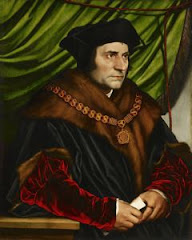On 17 September the acclaimed Catholic author Michael Novak joined Heather MacDonald and about 100 others at the Harvard Club to discuss his new book entitled No One Sees God. The two participated in a dialogue for about 30 minutes, which was then opened to the audience for questioning. The audience consisted of students and professors, as well as some writers, religious, and others. While theists held the majority, a fair amount of atheists attended, an aspect which in my mind strongly influenced the dynamic of the conversation.
Dr. Novak pointed out the two main themes of his new work, one each for believers and non-believers. He said that for the those who believe in God, doubt is a normal part of the religious growth. As for atheists, he exhorted them to "get past the bigotry of the Enlightenment." He describes God as a "loving friend," who cares for us on our life journey. An interesting implication of this idea, which Dr. MacDonald pointed out, is that friendship assumes reciprocity. God condescends to do His work through imperfect human agents. So while man leans on God, so God leans on man as well.
The debate between believers and the so-called "new atheists" has, according to Dr. Novak, been quite virulent, but he differentiated between those atheists who ingenuously seek the truth, while others excoriate anything seen as vaguely religious. Indeed, there can be no conversation, when the dialogue starts out along the lines of "religion is evil."
The conversation as a whole was quite insightful and stimulating, with few departures into trite arguments from the problem of evil on the one hand or design on the other. However, as the time went on, it became increasingly apparent that these two brilliant individuals were really not having a conversation at all, because one cannot have a conversation when each speaks a different language.
Dr. MacDonald seems to expect God to be empirically verifiable, while Dr. Novak has his sights set on a transcendent God. Furthermore, the two disagreed on the notion of absurdity, as well as the philosophical implications thereof. For Dr. MacDonald, an absurd universe is one with God, who also turns a blind eye to the good that religion is done, only focusing on the evils of the past and how to her religion is the cause of all human ills. The standard she uses to determine right and wrong is still a mystery to me.
Dr. Alice Ramos, a professor at St. John's University and a fellow audience member, agreed. She said that it seemed more like they were talking at each other. Some others I spoke with seemed to think likewise; while both speakers brought up interesting points, neither seemed to want to give the other credit. This incipient debate between theists and the new atheists will only become more combative as long as both sides fail to speak the same language.
The Death of Marie Antoinette, October 16th, 1793.
16 years ago





No comments:
Post a Comment